- Home
- Paul Christopher
Wisdom of the Bones Page 8
Wisdom of the Bones Read online
Page 8
‘Mug or cup?’
‘Mug.’
‘How do you take it?’
‘Regular, two sugars.’
Ray sat down in one of the armchairs. Near the two chairs there was a space of wall between bookcases. There were several photographs in black and white showing a younger Valentine in an army uniform but without any rank insignia. The background of the pictures was all Washington, D.C.
Valentine brought the coffee, put the mug down in front of Ray, then sat down himself. He brought out a package of Marlboros, lit one with a plain steel Zippo and offered the package to Ray.
‘No, thanks. Probably cough up a lung smoking something that strong.’ He nodded towards the photographs. ‘You were in the army?’
‘That’s right. Surprised?’
‘Should I be?’
‘Some people are.’
‘Because you’re homosexual?’
‘Who said I was? And why would it be any of your business?’ He sipped his coffee then took a long drag on the cigarette, the smoke flaring from his nostrils in two long trails.
Ray shrugged. ‘I’m a detective, Mr Valentine. Half of what I do is make assumptions, then go around seeing if I assumed right or not. The little popinjay over at Price’s place said you and Price were lovers once upon a time. I also assume that there were all sorts of homosexuals in the army and the navy and the air corps. What were you in?’
‘Monuments and Fine Arts.’
‘Never heard of it.’
‘Part of G2.’
‘Intelligence?’
‘Not really. We went into Europe looking for stolen art, tried to protect what was left after almost six years of war.’
‘No combat then?’
‘Some.’
‘Ever shoot anybody?’
‘Once. A looter in Berlin.’
‘Kill him?’
‘Yes. Almost by accident. He came out of a building I was going into. He had a gun so I shot him.’
‘Any idea who put Jennings Price into a refrigerator?’
‘He had lots of enemies.’
‘So you suggested on the telephone.’
‘I can’t think of any of them I know personally who hated him enough to kill him.’
‘You said he was a thief and a liar.’
‘I meant it.’
‘Then explain it.’
‘I suppose in your trade you’d call it receiving stolen goods. Jennings bought documents stolen from local archives, small towns around the state.’
‘He didn’t do it himself, right? He bought them from other people.’
‘Yes. They’re called pickers.’
‘So these pickers just walk into some small-town museum and steal documents?’
‘Not museums. Usually county courthouses. They usually don’t have much in the way of staff. It’s not hard.’
‘Sounds like you’ve done it.’
‘No. That was Jennings. He was proud of it. Explained how it was done in minute detail.’
‘You didn’t turn him in?’
‘We were lovers. Then.’
Ray sipped his coffee. He was getting a little taste of Valentine’s Marlboro second-hand and enjoying it immensely. ‘Boy over at Price’s says it was you doing the stealing and forging.’
‘Errol? He’s Jennings’s pet. Was. Anything Jennings told him he’d believe.’ Valentine raised one hand and gestured around the room. ‘You’ve been to Jennings’s place, obviously. Which of us appears to be reaping the glorious benefits of the rare-book trade?’
‘Right now I’d say Jennings Price was reaping his just desserts in the pits of hell if the Episcopalians are to be believed. And appearances can be deceiving, Mr Valentine, as y’all know full well.’
Valentine laughed. It was a pleasant sound, and once again it sounded natural and unforced. Valentine didn’t seem to be nervous or hiding anything. He stood up, went to the left wall and used a small key from his pocket to take two books out of a cabinet. He came back to where Ray was sitting and held both books up the way a model showed you two detergents on television. One of them was a tattered paperback called My African Journey by Winston Churchill M.P. It showed a picture of a much younger Churchill than the man who had guided England during the Second World War standing with a big-bore rifle in his hand and a dead rhinoceros at his feet. The second book was an even more tattered hardcover edition of something called Corn and Root Crops. ‘Which do you think is more valuable?’
Ray looked from book to book. ‘The Churchill book.’
‘In most catalogues, certainly. It’s quite rare, while the crop book is not.’
‘So why is it more valuable?’
‘Well, for one thing, you can’t tell a book by its cover but you can sometimes tell by the flyleaf.’ He handed the book to Ray, who opened it and turned to the first page. ‘Who is Sam Ealy Johnson?’
‘The Vice President’s grandfather. He started up the first ranch in Johnson City. Just as an autograph the book is worth more than the Churchill but the book itself is prime Texana.’ He smiled again, taking the book back from Ray and locking them both back in the case. ‘As you said, appearances can be deceiving. Especially among people.’ He picked up his cup. ‘More coffee, Detective?’
‘That’d be fine but I would like to use your facilities if you don’t mind.’
‘Not at all. Bear to your left. You’ll see a door at the back of the little dogleg.’
‘Thank you.’
The bathroom was neat, tidy and smelled faintly of Murphy’s Oil Soap. There was a can of Bowlene on the toilet tank and the toilet paper roll was full. The small window was frosted glass protected by a half dozen steel bars sunk firmly into the concrete sill. Shiny burglar alarm tape ran across the frosted glass and the leads led to a wire in the corner of the small space and then up into the ceiling. Valentine had more than the tinkling bell on the front door to keep him safe. Ray finished up and went back to join Valentine, who was in the process of lighting another cigarette. Ray sat down again.
‘Not much business this morning.’
‘I don’t get much walk-in trade.’
‘What kind of trade do you get then?’
‘People who know me, know about the shop. Regulars.’ He took a drag on his cigarette. ‘I do a lot of business over the telephone,’ he added, chewing smoke on his words as he exhaled. Ray watched him, fascinated, remembering when it was that easy to smoke. He had a brief, nightmarishly vivid image of his lungs filling with a slick mucus liquid and he quickly banished it.
‘How does that work? Doing business on the telephone.’
‘After a while you get to know what people want. Sometimes they’re very specific. I keep lists. When I find something I know one of my regulars would like I call him on the telephone.’
‘My good friend Errol says there are about a dozen major dealers in this Texana stuff in Dallas. A hundred collectors in the state.’
‘That’s about right. But there’s really only seven or eight dealers you can really count as major.’
‘How many of the collectors are in Dallas?’
‘Maybe half. The rest are in Houston.’
‘Rich people?’
‘Mostly.’
‘Important people?’
‘All rich people are important.’ Valentine let out a small smile.
‘I take your point.’
‘But what you mean is important as in political or social.’
‘Got it in one, sir.’
‘A few. A judge or two. The governor and some of his people.’
‘Connally collects this stuff?’
‘He does.’
‘Calls you on the telephone?’
‘From time to time.’
‘I guess that makes you important.’
‘I wouldn’t say so.’
‘What about the Vice President?’
Valentine’s lip curled briefly. ‘Mr Johnson collects guns.’
Ray paused for a mome
nt. ‘Who do you think killed Price?’
‘I told you he had contacts with some unsavoury people.’
‘Pimps?’
‘Procurers of one kind and another. Sexually as well as in business.’
‘Anyone in particular?’
‘I’d rather not say.’
‘What about you, Mr Valentine?’
‘What about me?’
‘You ever use the services of these… unsavoury characters you don’t want to put a name to?’
‘My proclivities aren’t… weren’t as exotic as those of Jennings. That was one of the reasons we stopped seeing each other.’
‘You’ve got me all curious here, Mr Valentine. About these proclivities.’
‘Jennings liked to believe that he was avant-garde, ahead of the times.’
‘I know what avant-garde means. I can even spell it.’
‘Sorry.’
‘No need. You were saying?’
‘He liked to use drugs. Hashish in particular. He also liked… group activities.’
‘Orgies and such?’
‘You might say that. They often included very young boys.’
‘How young?’
‘Thirteen and fourteen. Once or twice even younger.’
‘You didn’t like it?’
‘No. Believe it or not, Detective, I’m quite conservative when it comes to my love life.’
‘So you think one of the people he used to get him his little playmates might have killed him?’
‘I think it’s possible.’
‘What about the business side of it?’
‘I think that’s possible as well.’
‘You know all the dealers in town?’
‘Of course.’
‘And most of the collectors?’
‘If not all.’
‘Same people Mr Price knew?’
‘Yes.’
‘Any of them capable of killing him or have cause to?’
‘Possibly.’
‘How about a for instance.’
‘Jennings specialised in documents. If he sold a particularly expensive item to someone and they later found out it was stolen or a forgery, and thus effectively worthless…’
‘I get you. They might get pissed off enough to kill him. Maybe somebody who didn’t like the idea he’d been taken advantage of. Word gets out – maybe it makes him look foolish and he can’t afford to look foolish.’
‘You’re the detective, Detective. I’m just saying it’s a possibility. Make of it what you will.’
‘Well,’ said Ray. ‘It’s like I was telling young Errol – it’s usually sex or money.’ He smiled at Valentine. ‘Sometimes it’s both.’
‘I don’t know anything about what motivates murderers.’
Ray stood up, wincing, his legs feeling like lead, his feet all pins and needles from sitting too long. ‘It’s a funny thing about murderers,’ he said. ‘I’ve been a cop for a long, long while and it surprises me every time how ordinary murderers seem right up until the time they kill someone.’
Chapter Seven
Walking back to headquarters from Valentine’s shop Ray didn’t even bother going back up to the squad room. He called his ex-partner from the desk in the jail office on the City Hall side of the basement parking lot, made sure Ron was home then climbed into the Chevy. He drove up the parking lot ramp and headed north up to the expressway.
Ray and Ronald Tyrell Odum had known each other since the end of the war, when they’d both enrolled in the Traffic Officer’s Training School at the Texas Agricultural and Mechanical College, the next best thing to a police academy at the time. R. T. had been an Military Policeman in the Pacific and with Ray’s previous time as a beat cop on the Dallas force before the war making detective had been a snap. In all the years since neither man had ever been partnered with anyone else.
The two men came from very different backgrounds. R. T.’s money was about as old as a Texan’s money could be and both the Tyrells and the Odums claimed to have had relatives at the Alamo. Tyrell Oil went back the better part of a hundred years, expanding into cosmetics and pharmaceuticals after the First World War and chemicals and frozen foods following the Second. There weren’t too many places you could go in Texas without seeing the Tyrell Red Eagle peering down at you from a gas station or up at you from the frozen food section of the supermarket. As a child, R. T. had been given the grand tour of Europe and the Holy Land, followed by a round-the-world cruise that lasted more than half a year. Instead of joining the family business, Ron had first become a soldier and then a cop, instantly earning his father’s respect and his mother’s growing anxieties. By the late forties his mother became progressively more delusional and demented; by the early fifties she had become institutionalised. In 1955 she died of some undiagnosed malaise, leaving R. T., an only child, the sole heir of all his father’s holdings, including the big stone house on Vickery in the Highland Park district of Dallas.
Ray’s background, on the other hand, had been the essence of nouveau riche. His father had been a farmer up by the Oklahoma border who literally tripped into an oozing pool of tar sand and became an instant millionaire, selling off most of his land to oil development companies for a share in the profits. Half the leases had gone bust, but the other half hadn’t, and his old man was one of the lucky ones who cashed in during the Burkburnett oil stampede in 1912.
His father instantly started collecting bad art, while his mother started collecting bad furniture, and bad men on the side. Before the ink on the divorce papers was dry, Ray and his brother, Audie, short for Claudius, had been sent off to a boarding school just outside of Houston called the Hicker Academy – a wretched hole that was one step this side of a reformatory.
Somewhere between then and Ray’s eighteenth birthday his father had remarried a woman named Abigail Tasker, who’d been his housekeeper. Ray didn’t mind Abbey, but he never forgave his father for sending him away and he joined the Dallas police almost out of spite, then found out he enjoyed it. Audie had toed the line, gone to law school at Harvard and, after a little political and maybe even financial greasing by Daddy, was now the chief prosecutor for Wichita County. Somewhere along the line Abigail had fallen by the wayside as well.
Ray drove through the Vickery Place district until he reached R. T.’s newly inherited residence on the corner of Vickery Boulevard and Skillman Street, facing into the long narrow park that ran for a block between Llano and Vanderbilt. The whole area was nothing but turn-of-the-century mansions and R. T.’s was no exception – a monster of a place in grey stone complete with a turret, endless numbers of mullioned windows, an elegant porch leading up to a massive oak door, a curving gravel driveway and a stone wall completely surrounding the property and sealed off by a pair of high, curving wrought-iron gates. With the gates closed you could see the iron form of the Tyrell Red Eagle, wings spread, one to a gate, one eagle eye glaring at anyone with the temerity to think that he would be allowed through.
Ray turned in off the street, stopped in front of the gates and banged out R. T.’s initials in Morse code on his horn. A few seconds later the gates creaked back, pulled by some mechanism hiding in the shrubbery. Ray drove through and the gates closed behind him. He drove up the lane and parked in front of the house behind R. T.’s brand-new lemon-yellow Sting Ray split-window coup. With a little bit of difficulty Ray managed to lever himself out of the car and into the drizzling rain. R. T. was already on the front porch, a bottle of Jax in each hand.
‘Come on in out of the rain, son, your hat’s getting wet.’
Ray reached the porch and R. T. handed him one of the bottles. Somewhere along the line the man had fixed on the Louisiana brew as the only beer worth drinking and he had crates of the stuff brought in and stored in his basement. Ray assumed it would be the same in his newly inherited house, except here the basement was a whole hell of a lot bigger than his previous place. R. T. was dressed casually in jeans and a pale blue shirt, his big feet stuf
fed sockless into a pair of Bass Weejuns. Ray had heard himself described as a concrete block with a face to match; R. T. was just the opposite – slim, narrow faced and with the fingers of a piano player. He was two years older than Ray but looked ten years younger. He had big horsey teeth he didn’t mind showing when he smiled and the only real sign of lengthening middle age was his high domed forehead and thinning thatch of blond hair gone to grey. The only creases on his tanned face were laugh lines and somehow there always seemed to be a twinkle in his light blue eyes.
R. T. led Ray into the house. There was a raised foyer with a chequerboard marble floor and steps leading down into an enormous living room. A door on the right led into the turret and a smaller door directly in front led into a powder room. There were plants all over the place and a huge chandelier hanging from a ceiling at least fifteen feet above them.
Ray followed R. T. down the two steps into the living room. It was stuffed with antiques, huge armoires, blanket chests, end tables, side tables and refectory tables. Except for the gloominess of almost every piece of furniture it looked like the inside of Jennings Price’s apartment. ‘Flo likes all this foreign shit,’ said R. T., waving a hand. ‘Frankly I don’t much care for it.’ Flo was Florence, his wife, who had changed her first name by deed poll to Florentina the week after she married R. T., an affectation that never really took except on her cheques and invitations to charity balls. She was po’ white trash from somewhere up north like Floydada or Plainview and Ray had the sneaking suspicion she might have been on the stroll before she came down to Dallas and hooked R. T. a few years back. Not that he’d ever say anything to his friend but they both knew Flo didn’t like him very much, which is why he saw less and less of R. T. as time went on.
They finished up in the kitchen at the back of the house. It was large, plain and the cupboards were the original cream-coloured, tongue-and-groove notched V-board. The floor was green linoleum and the furniture was chrome – a room Flo hadn’t put her hand to so far. They sat down at the yellow Formica-topped table in the centre of the room and sipped their beers for a few moments without saying anything.
‘Feeling any better?’
‘Not feeling much worse.’ Ray shrugged.

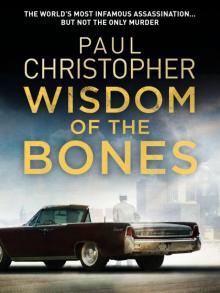 Wisdom of the Bones
Wisdom of the Bones The House of Special Purpose
The House of Special Purpose The Second Assassin
The Second Assassin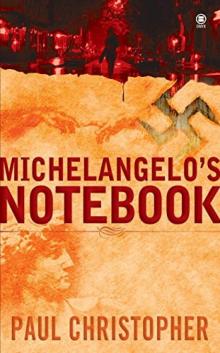 Michelangelo's Notebook
Michelangelo's Notebook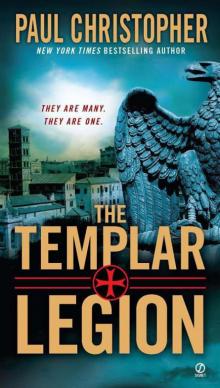 Templar Legion
Templar Legion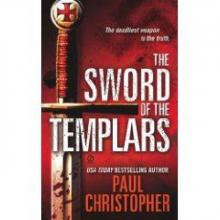 The Sword of the Templars t-1
The Sword of the Templars t-1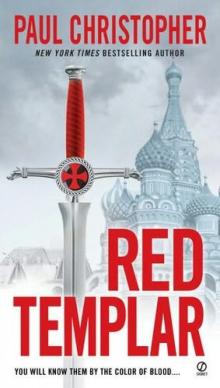 Red Templar
Red Templar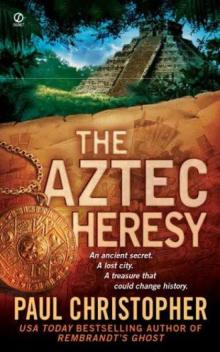 The Aztec Heresy
The Aztec Heresy The Templar Legion
The Templar Legion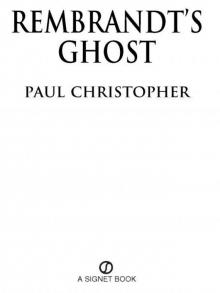 Rembrandt's Ghost
Rembrandt's Ghost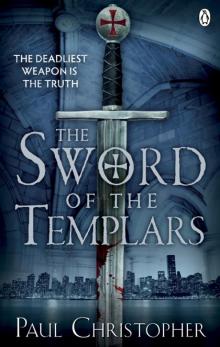 Sword of the Templars
Sword of the Templars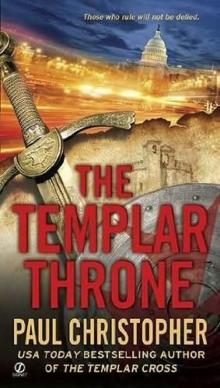 The Templar throne t-3
The Templar throne t-3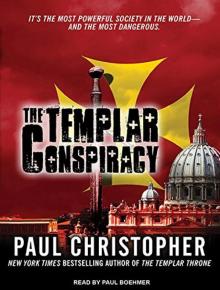 The Templar Conspiracy
The Templar Conspiracy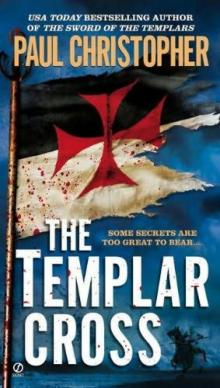 The Templar Cross t-2
The Templar Cross t-2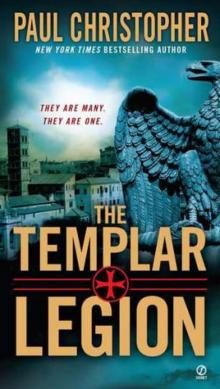 The Templar Legion t-5
The Templar Legion t-5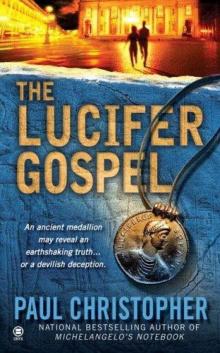 The Lucifer Gospel
The Lucifer Gospel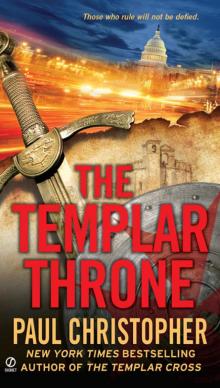 Templar Throne
Templar Throne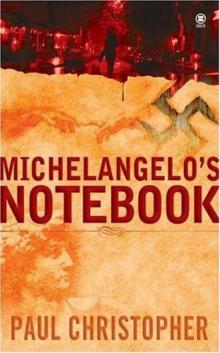 Michelangelo_s Notebook fr-1
Michelangelo_s Notebook fr-1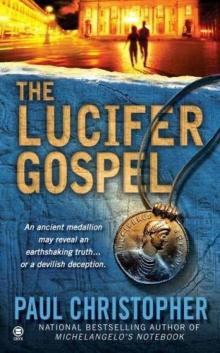 The Lucifer Gospel fr-2
The Lucifer Gospel fr-2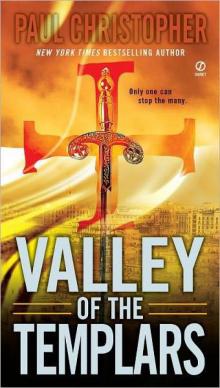 Valley of the Templars ts-7
Valley of the Templars ts-7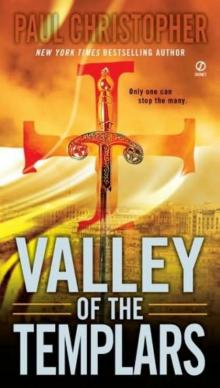 Valley of the Templars
Valley of the Templars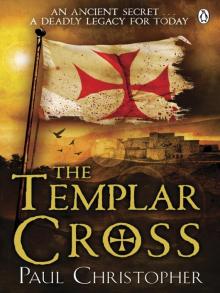 Templar Cross
Templar Cross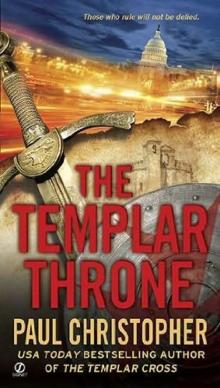 The Templar Throne
The Templar Throne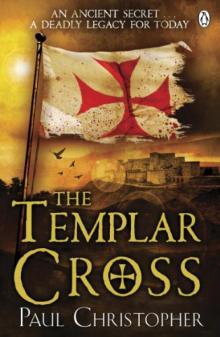 The Templar Cross
The Templar Cross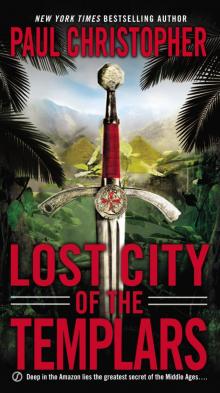 Lost City of the Templars
Lost City of the Templars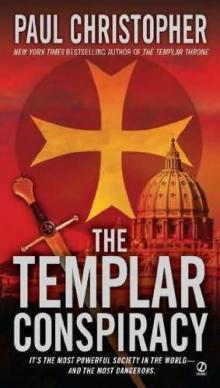 The Templar conspiracy t-4
The Templar conspiracy t-4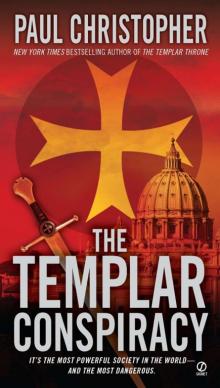 Templar Conspiracy
Templar Conspiracy